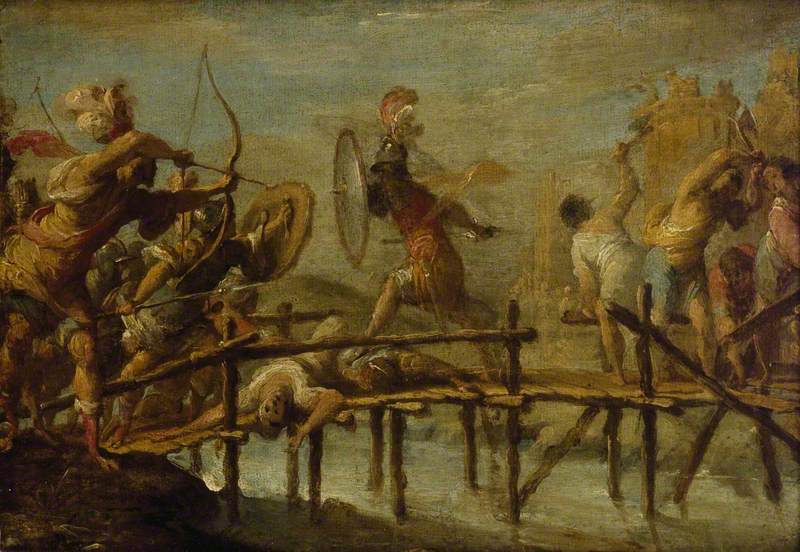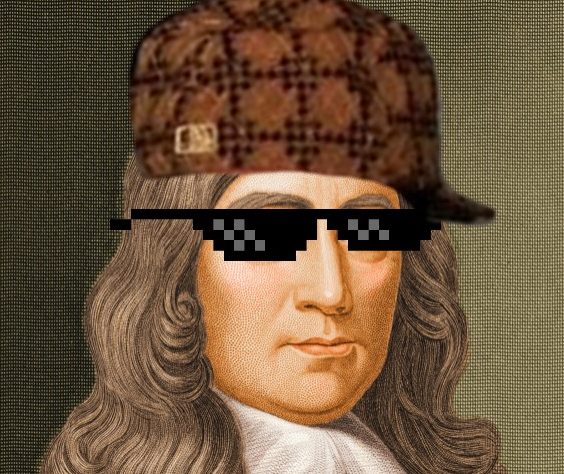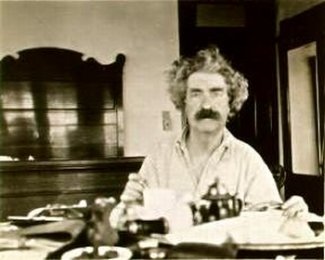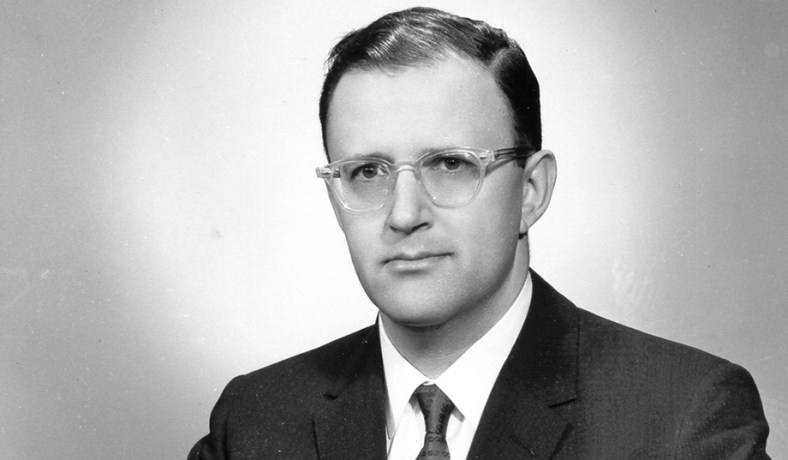Vitalist conservatism has more to offer than its critics let on.
Locke’s Nature and Nature’s God
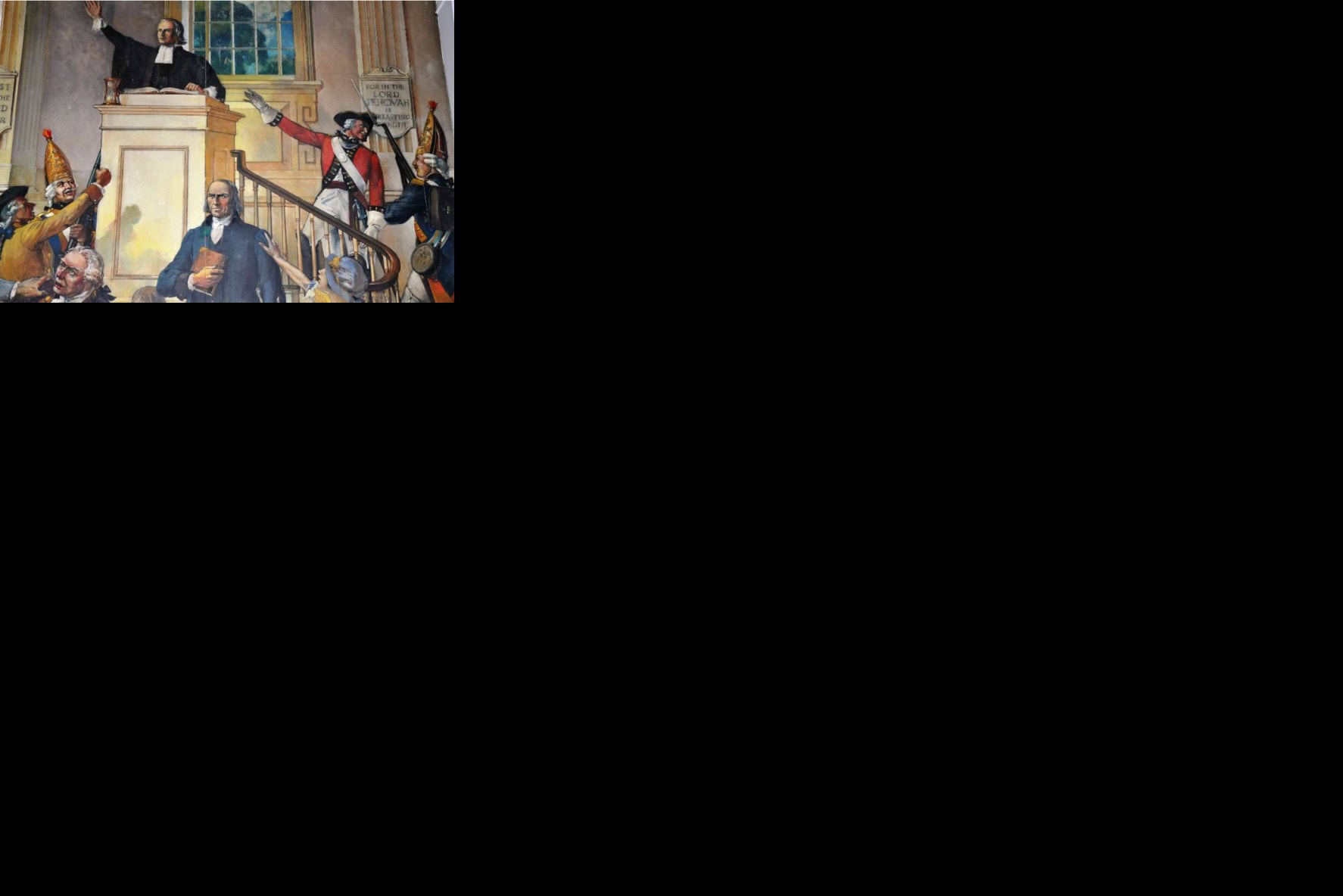
Critics of the founding should take a second look at its authors.
A few months ago my husband and I were in Williamsburg, VA, walking through a cemetery outside a little church.
We like to walk through cemeteries when we visit historical sites. This may sound uncomfortably morbid to those who imagine that ignoring death will exempt them from it. But reading the names on the memorials and tombs of the deceased—often grouped in families—brings life, dimension, and gravity to the history of a place, and to the lives that drove that history.
On this trip to Williamsburg, we came upon a large, prominent gravestone with a single fresh white rose placed upon it. The stone read:
Here sleeps in Jesus united to him by faith in the graces of a Christian life all that was mortal of Mrs. Ann Burgess, once the tender and affectionate wife of the Reverend Henry John Burgess of the Isle of Wright. She died 25th December 1771 in giving birth to an infant daughter who rests in her arms; she here waits the transporting moment when the trumpet of God shall call her forth to glory, honor, and immortality.
Oh death, where is thy sting?
Oh grave, where is thy victory?
I was moved by these fellow Christians’ exhortation to look, with expectant hope, toward deliverance from pain and the finality of death. It spurred me to learn more about this family.
Reverend Henry John Burgess, Mrs. Ann Burgess’s husband, was the pastor of men who would fight for the new America, many of whom would give their lives for the cause of the revolution. He would pastor their wives and widows, and minister to the children of the warriors and war dead.
He was a staunch supporter of the revolution himself and, according to records citing oral tradition, he was captured by British soldiers only to be saved by the intervention of none other than Mrs. and General Washington.
Inside the little church was a little memorial that read:
With grateful devotion, Virginia here recalls the memory and life and service of that noble band of patriots who consecrated themselves to the defense and preservation of the inalienable rights and charter liberties of the English colony in Virginia. Offspring of the church and the heirs of her teaching, these statesmen and warriors came here to find clear vision and nobler courage, and to invoke upon their cause the blessings of their God and the God of their fathers….
My attention was fixated on these saints, believers in the God of the Bible, in the primacy of the holy Scriptures, in inalienable rights, and in self-government, powerful ideas whose synthesis inspired this “noble band of patriots” and bound them together.
The Founding Fervor
I went home and cracked open the first volume of Political Sermons of the American Founding Era: 1730- 1805. I cannot recommend these sermons enough to the student who strives to understand the meaning of America and the minds of the revolutionary families who forged her.
What created a fervor so intense that men and women would make such sacrifice?
Moses Mather, whose work “breathes the righteous patriotism characteristic of the pulpit of the time” wrote:
Free agency or a rational existence with its powers and faculties and freedom of enjoying and exercising them is the gift of God to man. The right of the donor and the authenticity of the donation are both incontestable; hence man has an absolute property in and right of dominion over himself his powers and faculties; with self-love to stimulate and reason to guide him in the free use and exercise of them independent of and uncontrollable by any but him who created and gave them…. And from this principle all the civil exusiai, or rightful authorities, that are ordained of God, and exist in the world, are derived as from their native source. From whence our authorities dominions and Powers? from God, the sovereign ruler, as the fountain, through the voice and consent of the people.
Reverend Elisha Williams, likewise, preached against a “religious establishment so far as to make it a rule binding to the subjects, or on any penalties whatsoever, seems to me to be oppressive to Christianity, to break the sacred rights of conscience….”
And so the revolutionaries took up arms to defend a man’s family and community from a government which did not respect the moral truth that “Every man having a property in his own person, the labour of his body and the work of his hands are properly his own, to which no one has a right but himself.”
Jonathan Mayhew, whose sermons were “imbued with the thoughts of Milton, Locke, and Sydney,” extolled liberty. He said of the ancient and modern philosophers: “Wise brave and virtuous men were always friends to liberty.”
To be sure, the sermons and writings are not in sync on every significant point related to theology or governance. But on page after page, the political sermons reveal that these men, highly influential, well educated in the ancients and moderns, and Locke prominent among them, embraced certain realities of Christian teaching.
Especially now, when the meaning and significance of the founding and Locke’s ideas is fiercely debated among the conservative intelligentsia, these sermons provide an invaluable contribution.
The debate over Locke is significant and legitimate. Is he, for example, to blame for today’s widely-embraced secularism, the misguided idolization of autonomy as the highest good, the cultural decay and erosion of our institutions? Was the founding so Lockean, and therefore so poisoned by secularism and individualism, as to eschew the Common Good altogether? And was the founding Lockean to the exclusion of traditional and enduring Christian teaching?
How we answer these questions has enormous implications. So let’s have the debates.
There does seem to be an especially acute sense of urgency now, as the country faces what feels like a turning point in history: as I type this, looters and rioters are tearing down their cities. The spark that hit the dry kindling was the extrajudicial killing of a Black American, George Floyd. Americans are divided, and there is little confidence in public institutions such as the press, the medical community, and government experts.
All the while, an imperialistic, atheist, Communist China is contesting American global preeminence. China’s view of justice and its consequent national purpose is incompatible with that of the Western democracies.
We must get to the roots of these problems collectively if we are to do our best to right the course of our nation, rediscover the principles that make American what she is, and encourage the kind of Americanism that made our regime exceptional.
Locke in Context
To be sure, I readily confess that I’m no expert on Locke, nor am I a political theorist. But I’ve been the student of a couple. While in the Ashbrook Scholar Program nearly two decades ago, I studied under the guidance of both the late Dr. Peter Schramm and Dr. Bradly Thompson, who recently dropped a MOAB in this publication; though (carrying out the metaphor) I believe his essay drew significant retaliatory fire here, here, and here.
I will push back on this one point in Thompson’s essay: “While it may be true that Ahmari’s notions of the ‘common good and the highest good are among the bedrock principles of classical and Christian philosophy,’ they are not a part of the American tradition unless you think John Winthop’s puritan Massachusetts was reborn in 1776 and re-instituted in 1788.”
Oh, but they are, deeply and inseparably, yes sir. The Revolutionaries, the ones who soaked the grass with their blood for their posterity—us—did lay those foundations!
As Joseph Loconte notes, Locke made his most famous arguments for human liberty when “political and cultural catastrophe” shook Western society. Locke’s powerful ideas did not take hold not in some disembodied intellectual cloud, but in the minds of real people who would not violate their consciences at the point of a sword, and who saw and seized an opportunity to form a more just government.
A civil government formed on the basis of two central and inseparable ideas: God created all men equal (for the Christian, in His image) and therefore with inalienable rights: life, liberty, property. Liberty is found in what is true, and what is true is immutable and eternal.
A government based on this idea of liberty was not some kind of intellectual wrecking ball destined to destroy community, social institutions, and all concern for the Common Good. That’s certainly not how those first pious would-be revolutionaries understood Locke’s ideas or how they applied them.
Perhaps it is the case that they misunderstood Locke, or perhaps they took him seriously but not literally, as it were. After all, learned as they were, they were not political theorists, but men and women with deep conviction that their faith was true, forging a new nation, as best as they could with reason and wisdom as their guide.
But throughout these political sermons there is a common theme that government’s aim is justice and that living in according with God’s Law, and recognizing the equality of men before God, would bring about the greatest flourishing for the benefit of general public’s felicity.
This fixed natural law (which they understood as God’s law, broadly) protected disparate religious sects and enabled them to live peaceably in a society that not only tolerated different expressions of religious conviction, but also encouraged neighborliness between them. Locke’s ideas were compatible with the deepest convictions of those rugged, courageous communities of people.
But Locke was not the only philosophical and political forefather of the American Founding, and not all of those schooled in the milieu of Reformed and Augustinian Christianity agreed with those who concluded it was right and just to violently revolt.
There are competing Biblical principles that the Christian must still grapple with, none more than the exhortation to respect the civil authorities—unless those authorities, those “Caesars,“ usurp that which is God’s alone. These ideas are presented in our early sermons. And it is impossible to neglect this mixture of religious and intellectual convictions if we are to understand the new America.
This nation, while claiming a unique moral authority no other nation has hitherto possessed, would still require a Civil War to live up to those first principles. Critically, however, it would do so by hearkening back to these very same principles.
Early sermons grapple with, and in some cases explicitly embrace, the Lockean expression of natural rights that Thomas Jefferson so ably captured in the Declaration of Independence (the construct that Jefferson characterized as the expression of the American mind and President Lincoln, referencing Proverbs 25:11, would call the a golden apple framed by the Constitution as by a “picture of silver”). Natural right was not only compatible with their Christian convictions, but necessary to stake out a new government better than what the colonists had left behind.
Moreover, unlike those who defend Locke as having held freedom and autonomy as the highest goal, these first Americans understood those principles as necessary to form a government not narrowly concerned with advancing some kind of humanist, subjectivist, pleasure-seeking society, but with justly protecting natural rights so that man may pursue the good, love God, love his neighbor, and carry out his duty to his neighbor as an outward expression of that love. Locke was a defender of Christians and other religious communities who consented to be governed by this understanding of the good.
The American Cause
If Jefferson could be blamed for anything, perhaps it’s that he relied too much on the longevity of the Judeo-Christian contours of the broad, collective view of the just and the good of the republic. Still, aiming figurative fire at him and Locke seems to me to be taking aim at the American project itself.
One evening after class at a pub near the college campus, I was gathered around with other students talking with Dr. Schramm. The conversation started light and jovial, and it became more serious. He was pressing me to answer question after question about a complex political problem. Each of my replies was, I thought, reasonable and flowed from sound logic. But each was answered with another question. The last one was about natural law and man’s equality, until I could only answer, exacerbated “it is self-evident!” Dr. Schramm leaned back pounded the wooden table and said in his Hungarian drawl, “Ah…and what will you do when those truths are no longer self-evident?” I had no answer. Nobody did.
But I think the answer is found in those political sermons.
The American Mind presents a range of perspectives. Views are writers’ own and do not necessarily represent those of The Claremont Institute.
The American Mind is a publication of the Claremont Institute, a non-profit 501(c)(3) organization, dedicated to restoring the principles of the American Founding to their rightful, preeminent authority in our national life. Interested in supporting our work? Gifts to the Claremont Institute are tax-deductible.
America once recognized the common—and highest—good.
There there, Pepe—it’s gonna be O.K.
No perceptivity, no public-mindedness, no plan.
We are inclined, but not fated, to decadence.
On C. Bradley Thompson and Harry V. Jaffa.

